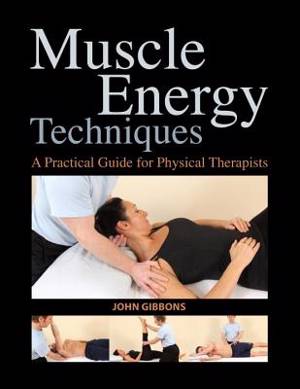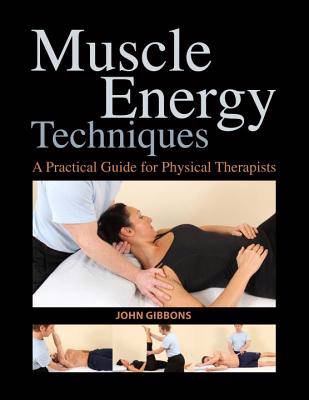
En raison d'une grêve chez bpost, votre commande pourrait être retardée. Vous avez besoin d’un livre rapidement ? Nos magasins vous accueillent à bras ouverts !
- Retrait gratuit dans votre magasin Club
- 7.000.000 titres dans notre catalogue
- Payer en toute sécurité
- Toujours un magasin près de chez vous
En raison de la grêve chez bpost, votre commande pourrait être retardée. Vous avez besoin d’un livre rapidement ? Nos magasins vous accueillent à bras ouverts !
- Retrait gratuit dans votre magasin Club
- 7.000.0000 titres dans notre catalogue
- Payer en toute sécurité
- Toujours un magasin près de chez vous
Muscle Energy Techniques
A Practical Guide for Physical Therapists
John Gibbons
Livre broché | Anglais
53,45 €
+ 106 points
Description
Muscle energy techniques (METs) are a tool for physical therapists to strengthen patients' weak muscles, restore normal muscle tone, increase joint mobility, and improve circulation, musculoskeletal function, and overall well-being. First developed in 1948 by American osteopath Fred Mitchell, METs offer a valuable approach for practitioners of physiotherapy, sports therapy, osteopathy, chiropractic, yoga, and Pilates. METs are unique in their application: rather than the therapist initiating the effort, the patient contracts specific muscles against a resistance applied by the therapist, who is simply guiding the exertion in a controlled position and direction. While METs have been in practice for decades, the theory behind them is often misunderstood and the possibilities for their application overlooked. Muscle Energy Techniques is the first affordable, accessible guide to METs for students and practitioners of all levels. Author John Gibbons walks readers through the assessment testing of chronically tight muscles and shows how to apply a specific MET to correct dysfunctional muscles and restore normality. Easy-to-follow postural muscle tables and 160 full-color photographs and illustrations aid practitioners in monitoring the progress of patients and provide students with the underpinning knowledge of the specific anatomy. The principles described can be incorporated quickly and effectively into a treatment plan and used to assist in the rehabilitation of anyone who is recovering from an injury. Table of Contents:
Acknowledgments
Preface
Chapter 1: Anatomical Terminology
Chapter 2: Planes of Body Motion
Chapter 3: Muscles and Function
Chapter 4: Theory of Muscle Energy Techniques
Chapter 5: Muscle Imbalances
Chapter 6: Core Muscle Relationships
Chapter 7: Upper Body
Chapter 8: Lower Body
Chapter 9: Trunk
Chapter 10: Specific Testing for Muscle Weakness
References
Index
Acknowledgments
Preface
Chapter 1: Anatomical Terminology
Chapter 2: Planes of Body Motion
Chapter 3: Muscles and Function
Chapter 4: Theory of Muscle Energy Techniques
Chapter 5: Muscle Imbalances
Chapter 6: Core Muscle Relationships
Chapter 7: Upper Body
Chapter 8: Lower Body
Chapter 9: Trunk
Chapter 10: Specific Testing for Muscle Weakness
References
Index
Spécifications
Parties prenantes
- Auteur(s) :
- Editeur:
Contenu
- Nombre de pages :
- 191
- Langue:
- Anglais
Caractéristiques
- EAN:
- 9781583945575
- Date de parution :
- 15-01-13
- Format:
- Livre broché
- Format numérique:
- Trade paperback (VS)
- Dimensions :
- 211 mm x 272 mm
- Poids :
- 680 g

Les avis
Nous publions uniquement les avis qui respectent les conditions requises. Consultez nos conditions pour les avis.






